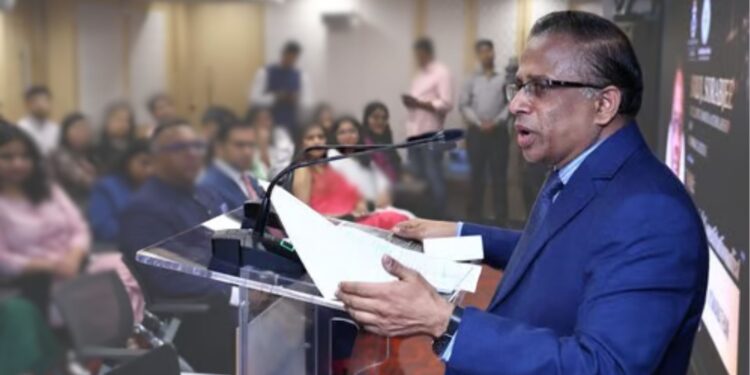During his address on Saturday, Supreme Court Justice KV Viswanathan raised concerns about the growing issue of misinformation spreading through digital platforms like WhatsApp, cautioning the public against falling prey to fake news. Referring to the term “WhatsApp University,” often used to describe the spread of misinformation, he urged people not to be misled by unverified messages.
“Today, misconceptions are widespread. We have this ‘WhatsApp University.’ We should be careful not to get carried away by such messages. There is a lot of truth decay happening,” Justice Viswanathan remarked during the event at OP Jindal Global Law University, where he was part of a panel of Supreme Court judges discussing the Indian Constitution.
In his speech, Justice Viswanathan also addressed the importance of protecting the rights of minorities, clarifying that the term “minority” extends beyond religious groups to include linguistic minorities. “We are all minorities. The term ‘minority’ has often been linked to religion, but it also includes linguistic minorities. It’s crucial to safeguard these rights, and whether we are judges, legislators, or part of the executive, we must defend them with full commitment,” he stated.
Regarding India’s constitutional democracy, Justice Viswanathan emphasized the need for continuous reflection on how the Constitution and its institutions function. He pointed out that, on the whole, India has performed extraordinarily well in upholding constitutional values.
He highlighted the smooth operation of India’s democratic systems, noting that there has been no instance of any Supreme Court judge, state legislature member, or executive clinging to their positions after their terms ended. This, he argued, is a testament to the effectiveness and integrity of India’s constitutional framework. “There has never been a threat of secession, which speaks to the greatness of our people. Our Constitution enshrines equality and diversity and guarantees fundamental rights. We have course-corrected on issues like ADM Jabalpur,” Justice Viswanathan observed.
Justice Viswanathan further praised the Supreme Court’s fundamental structure doctrine, one of the most significant judicial pronouncements in Indian legal history. “The basic structure doctrine has stood the test of time and remains a cornerstone of our legal system,” he said, emphasizing that the judiciary has played a critical role in checking any excesses by the state.
Justice Viswanathan also stressed the judiciary’s responsibility to deliver timely justice, stating that delays undermine the rule of law. “While filing cases demonstrates faith in the judiciary, people expect prompt justice. Failing to provide timely justice violates the rule of law,” he asserted.
In his concluding remarks, Justice Viswanathan underscored the need for the judiciary to maintain its independence, saying that while it must respect all constitutional organs, it must do so “at arm’s length” to ensure it remains impartial and free from undue influence. This balance, he stressed, is vital for upholding the integrity of India’s democratic framework.

















